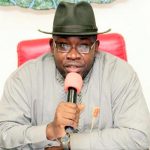
According to him, a legislation will help to protect elders, minimize abuses they suffer and provide necessary assistance to them.
Olowookere, a Consultant Family Physician at the University College Hospital (UCH), Ibadan, said neglecting and abusing the elderly by Nigerians contribute to depression in their lives and ultimately, death.
“The National Assembly should come up with a bill on all forms of abuse against the elderly to make government at all levels provide for them and help minimise these abuses.
“The consequences of elder abuse include declining functional abilities, increased dependency, increased sense of helplessness and stress.
“Others are worsening psychological state, premature mortality and morbidity, diseases, depression and dementia, malnutrition and death,’’ he told the News Agency of Nigeria (NAN) on Saturday.
Experts list elder abuse as ill-treatment, physical abuse, psychological or emotional abuse, neglect and abandonment, financial abuse, societal/cultural abuse, and structural/institutional abuse.
Under the 1999 Constitution, the Fundamental Objectives and Directive Principles of State Policy particularly Section 14 (20), (b) states, “the security and welfare of the people shall be the primary purpose of the government”.
Section16 (2), (d) also guarantees “suitable and adequate shelter and food, reasonable minimum living wage, old age care and pensions and unemployment, sick benefits and welfare of the disabled are provided for all citizens”.
Care for the elderly has not been the priority of successive governments in Nigeria.
NAN recalls that the 6th Senate passed a bill for an Act to establish a national centre for elderly persons for general purpose of providing welfare and recreational facilities for the elderly and the designing of developmental programmes and activities for the advancement of elderly persons in Nigeria.
The bill, sponsored by Sen Ganiyu Solomon (APC-Lagos), was passed on July 14, 2009.
Olowookere, who called on the current lawmakers to dust off the previous bill, stressed the need for the care of the elderly by the society and the government as senior citizens.
He pointed out: “Elder abuse occurs within any relationship where there is expectation of trust which causes harm or distress to an older person.
“The core element of elder abuse is the expectation of trust of the older person toward their abuser.
“It also includes harm by people known to an older person or he has a relationship with such as a spouse, partner or family member, a friend or neighbour or people that the older person relies on for services.
Olowookere called for mass enlightenment and campaign on elder abuse.
He said operators of the country’s criminal justice system such as the police and lawyers should be educated on how to relate with elderly people when they are brought to court.
The physician also suggested community involvement in responding to elder abuse to ensure their safety and promote their welfare.
“Communities can be assisted by government to develop programmes that are structured toward meeting the needs of elderly persons.
“Nigerians, government at all levels, families and communities should assist the abused and abusers and come up with intervention strategies that will benefit the elderly in Nigeria.
“We should change our attitudes to acts of abuse of the elderly that are usually regarded as normal behaviour in the society,’’ Olowookere said.
WATCH TOP VIDEOS FROM NIGERIAN TRIBUNE TV
- Relationship Hangout: Public vs Private Proposals – Which Truly Wins in Love?
- “No” Is a Complete Sentence: Why You Should Stop Feeling Guilty
- Relationship Hangout: Friendship Talk 2025 – How to Be a Good Friend & Big Questions on Friendship
- Police Overpower Armed Robbers in Ibadan After Fierce Struggle






